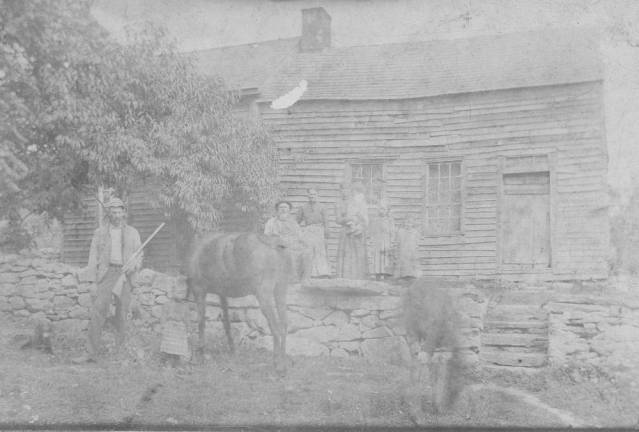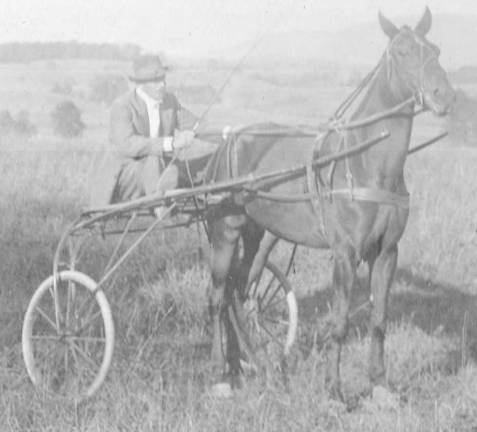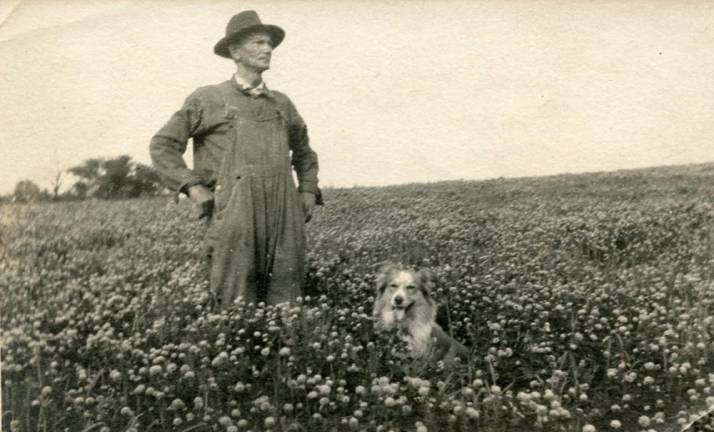


As an advocate for history, I am always interested in the development of Sussex County.
The meadows with roaming Holstein milk cattle; the rows of tall green stalks holding yellow corn cradled atop their shoots, swaying in unison with a passing breeze; and the toned horses sprinting along neatly constructed white wooden fences on the farms of today. The view of countless stones that have been gathered by hand and placed along edges of pastureland.
These sights of beauty that please the eye today are the harvest from the roots of yesterday’s hard-working laborers.
We are lucky when we can find a family whose ancestors possess these same roots. Such is the case with the Lott and Checkur family.
In the northern reaches of the county, the vestiges of the spirited and talented Peter Lott remain with us today. I have sat beside the fireplace with one of his descendants, Margaret, now passed, who showed me the rolling pins and pestles and arrowheads of the ancient Lenape that were found in furrows while Peter was plowing his fields.
She showed me Peter’s old banjo and spoke of the blueberry bushes in the hollow of their now preserved farm, which she enjoyed tending.
I left that day with some of her delicious blueberry muffins.
Here’s a story of Peter Lott:
He was the son of Batholomew Saul Lott and Jane B. Heady. He was born in 1865 in Unionville, N.Y., and died in 1940 in Wantage. Peter married Eva Davenport in Stockholm in 1887.
He farmed with his father on Bassett Bridge Road in Vernon until his father’s death in 1898 and his mother’s death in 1900, when the farm was sold.
He moved his family to Standard Oil Road in Unionville, N.Y.
He worked as a day laborer until 1907, when Standard Oil built a pumping station. He then took a job with Standard Oil as a fireman and a coal carter. Peter fired the boilers with coal that was hauled in by horse and wagon.
His son Eber drove the horse and wagon at age 14.
The coal was shipped from Pennsylvania on the Lehigh Railroad.
The family continued to operate the toll bridge over the Wallkill, which cost 5 cents to cross. Tolls were not collected on Christmas. The money was used by the township to maintain the bridge.
The old homestead and bridge are still in place today (without the tolls).
Peter later became ill from the coal dust and in 1912 moved to the Smith Farm on Wolfpit Road in Wantage. His children continued to farm until Peter was well enough to work.
In 1916, the family moved to the Nicholas Cox Farm, which they purchased. Peter continued farming throughout his life.
He loved writing poems, according to his daughter Jane Gilman, as far back as she could remember. There is a book of his poetry, and it shows his keen abilities and insight.
Held in the family is the trap made by a local blacksmith for his father in 1810. It trapped many large bear, otter and wolves when they roamed the hills and valleys and created hazard for the farmers.
An ancestor in the Lott family had been a soldier in the Revolutionary War, serving in the Continental Army and as a member of Washington’s Life Guard. He lived to 106.
They had a mule named Jennie, which hauled a manure spreader wagon with Peter Lott driving.
Note the kitchen door open to the north wind! Rolling land with many fences.The area in back of the house was an active part of the farm with several outbuildings, a wash house and barns.
The outdoor privy was close to where the old quince tree and pear tree were located, near the southwest corner of the home, which faces east.
Peter had many talents beside farming. He was a prognosticator, predicting the weather by caterpillars and observing the moon; hunter and trapper; and was known in the region as “the farmer-poet.”
There exists a view of their home from 1887 as painted by Louie Larsen.
There’s a photo of Peter on his sulky with a farm horse that he drove in the exciting afternoon trotter races in Deckertown back in the summer days of the late 1800s.
Here’s part of his poem “The Old Haunted Mill”:
Far upon old Pochuck Mountain side,
Overlooking Wallkill River’s valley wide
There silently stands the old haunted mill.
I have seen it in the moonlight,
In the lonely hours of midnight,
When nature was hushed and was still.
Peter Lott is an embodiment of the strong-willed and able-bodied free spirit of the people who populated our Sussex County and from which grew today’s rural pride.
Bill Truran, Sussex County Historian